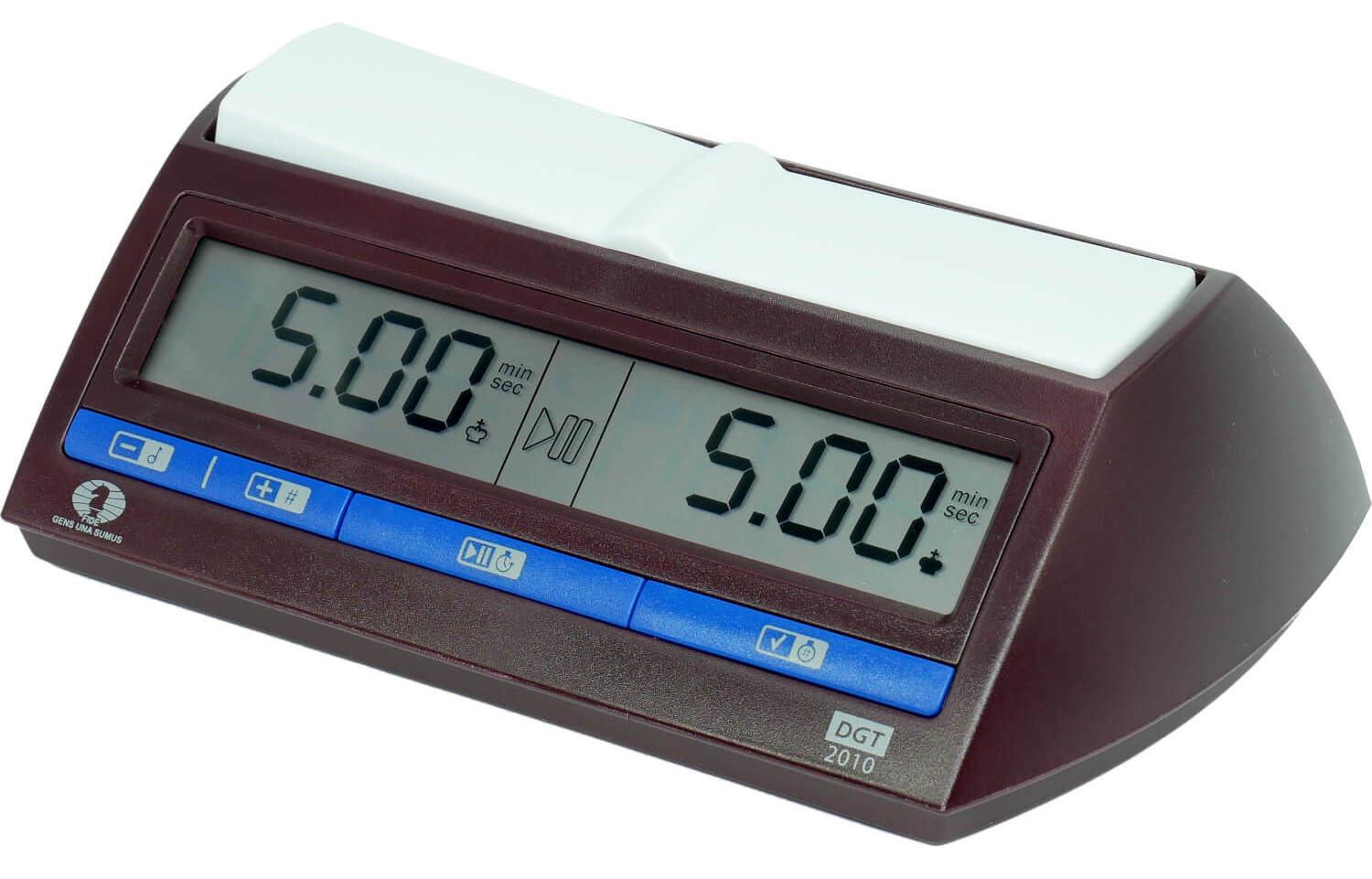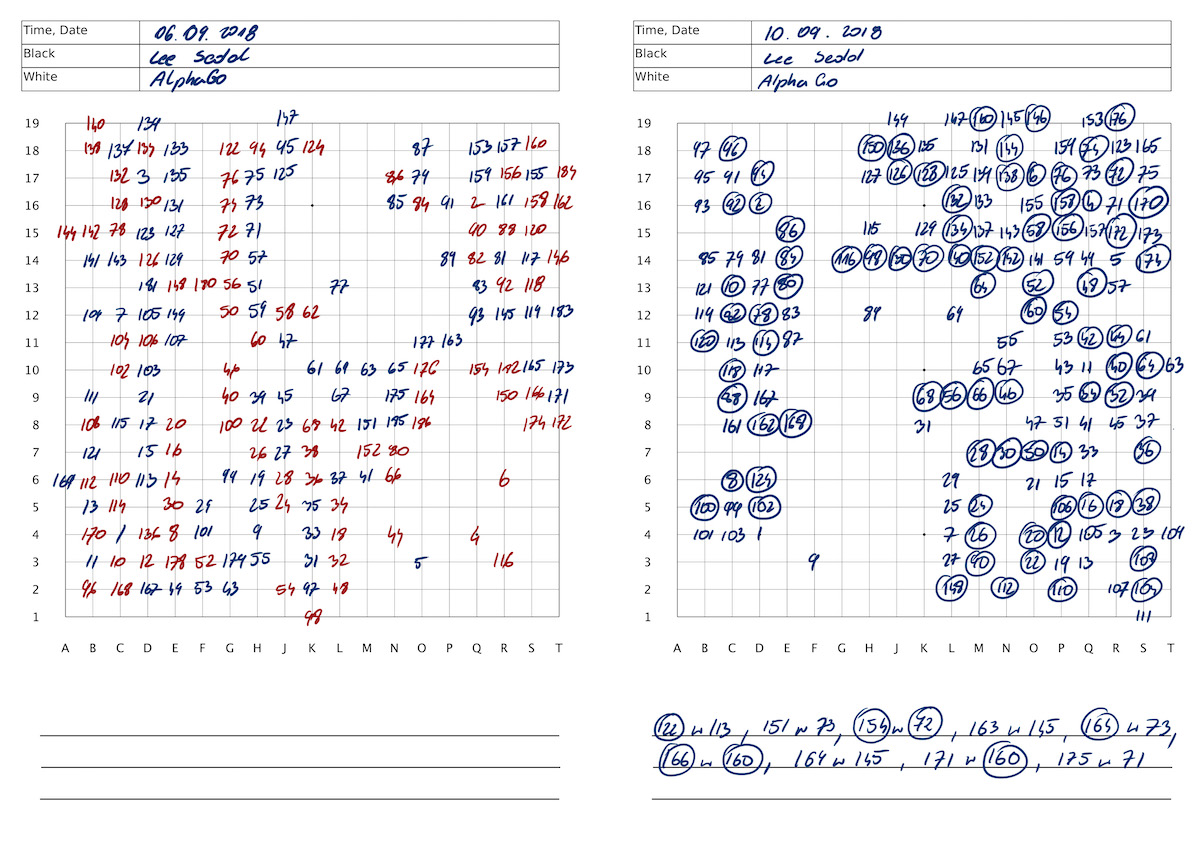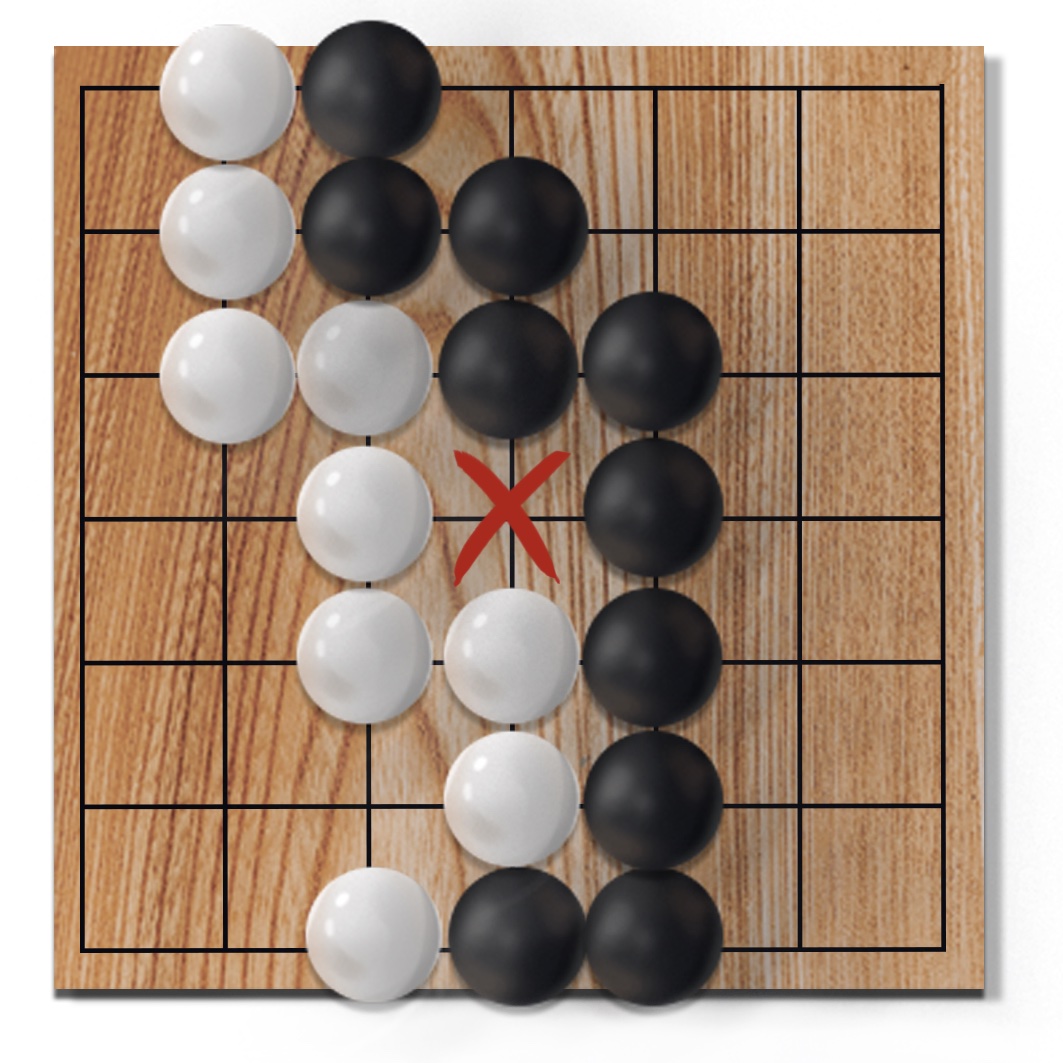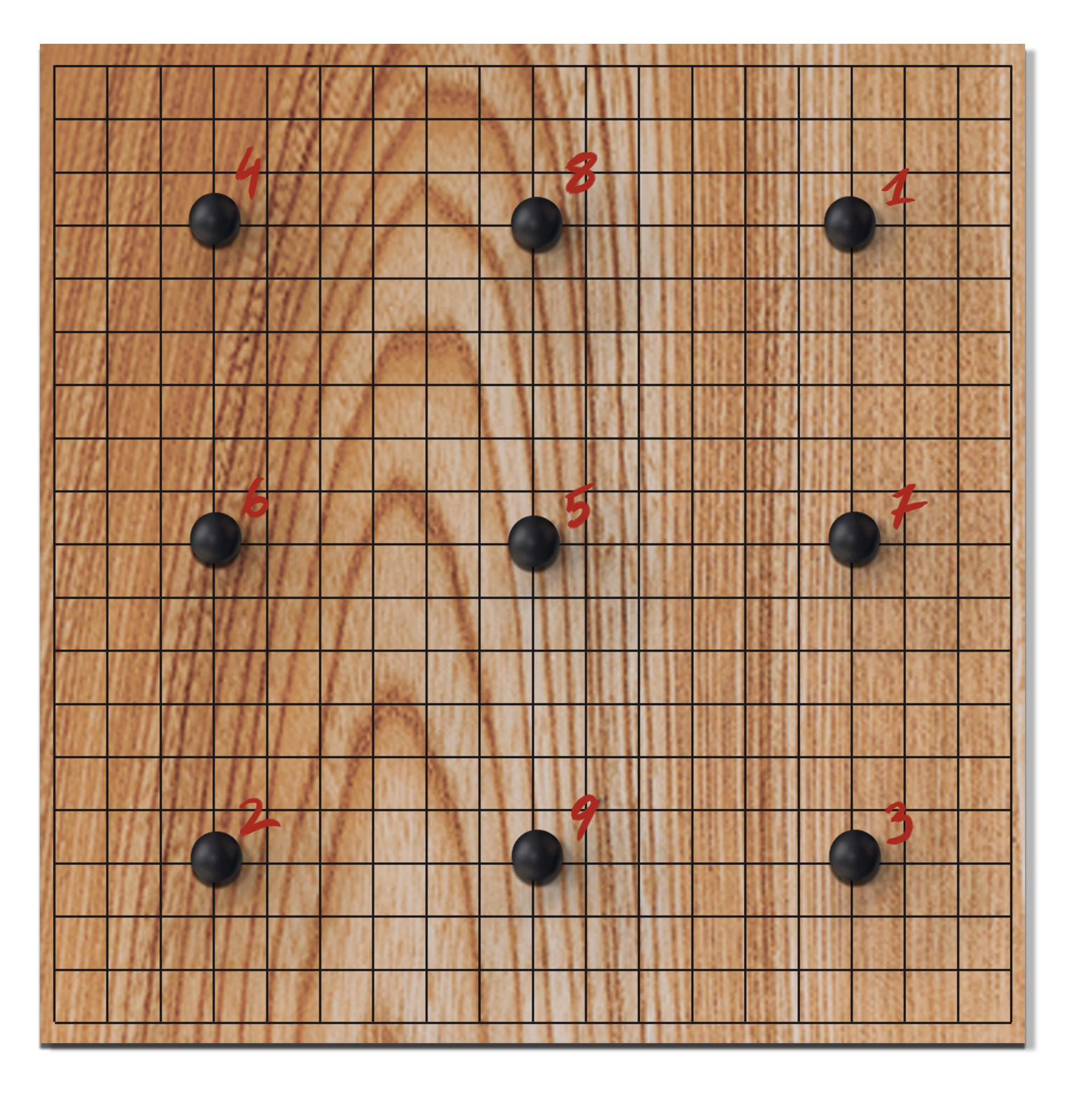Guide
First go tournament? See what you should know so you don't get stressed.
You have learned the rules of the game of Go: you already know when a group is alive and when it is not, what the ko or seki rule means, but until now you have only played over the Internet or in a club in your area? Would you like to take part in a tournament held live, but don't know what it takes and what will happen? Here's some important information to reduce the stress before your first competition.
Registration
Once you know which tournament you want to participate in, the first thing you need to do is to register. The first such option is pre-tournament registration. Most often this can be done on a dedicated website or an Facebook event (an example) created by the organizers. During the registration you will be asked to provide your EGD PIN number. Due to the fact that this is your first tournament you do not yet have an official account in the EGD (European Go Database), so leave this field blank. You don't have to worry about setting up such an account, the tournament organizer will do it for you afterwards.

At many tournaments it is also possible to register on the day of the tournament. In this case, you need to arrive early enough and sign up at the designated place. However, we advise you not to leave it to the last minute due to queues and general chaos on the day of the tournament. Remember, however, that despite early online registration, you must approach the registration area and uncheck yourself as an "arriving" person, otherwise you may not be on the list of participants.
Fee
Participation in any land-based tournament (sometimes in online tournaments there is also this rule) is paid. The amount of the fee is given by the organizer, and remember to check how to make the payment (by bank transfer or on the day of registration). If the organizer asks you to make the payment by wire transfer, take into account the length of posting the payment and the fact that most tournaments are organized on weekends, when banks do not work. In this case, it is worth making the payment in advance to be sure of your participation.
If you are already registered and your participation paid for there is nothing left to do but wait for that special day. Remember not to study or study anything the day before the competition, instead, it is better to go to bed early to be rested and full of energy. Also remember to eat a decent breakfast, especially the first day of the tournament is long and demanding, without a supply of energy you may make yourself sleepy and unwilling to make a strenuous mental effort.
Pairing
On the day of the tournament, once you have reported your arrival to the organizers, there is nothing left for you to do but wait for the pairing of your first round.
Pairings are nothing more than a list of all participants divided into pairs. These pairs signify the opponents for the upcoming round. If it turns out that you have already played with your opponent in the current tournament, report to the organizer as soon as possible. Do the same in case you are not on the list, or if you are, in case you wanted to forfeit a round (we will talk about forfeiting rounds later). The list with pairings should be available in some prominent place, such as on a bulletin board (often you can also find there a schedule, rules or a list of nearby restaurants) or displayed on a wall from an overhead projector.
On the pairing list at the top is usually the name of the tournament and the round to which it applies. Below that, sequentially from the left: the number of the board you are playing on, the player using Black stones, the player using White stones, and a space for the score of your round.
Free draw
It can happen, although most often such a situation occurs during small tournaments, that there is an odd number of players in a given round. In such a case, the weakest player (the player with the lowest number of MMS points) must wait one round without playing it (he is then said to pause). He then receives 1 point, as if he had won the game. However, it cannot happen that someone pauses several times during one tournament.
The board and the stones
Once you know which board you are playing on and with whom, you go to the designated place. Most often you are free to choose which chair to sit on; the clock and stones can always be rearranged.
As you probably already know Go is played on a board called a goban. Black makes the first move (unless it's a handicap game, which we'll talk about later). You may encounter a custom where, because Black starts first, White is allowed to set the clock as he is comfortable (to his right or left). This is not a rule, but being Black and seeing that White rearranges the clock it is not appropriate to draw his attention, you can always possibly ask if setting the clock on either side is extremely inconvenient for you.
Custom dictates that before making the first move you should greet your partner with the Japanese phrase onegaishimasu or wish him a good / beautiful / nice game.
The first move in equal games is traditionally made in the upper right quadrant of the board - the player making this move must bend over slightly, which is similar to a bow. White's answer is made in one of the two corners on the right side of the board (looking from the white player's side).
Clocks
Due to the fact that several rounds are played during a tournament on one day, a timer is an integral element, keeping an eye on the time of each participant. Depending on the tournament (its class and rules), you may encounter different lengths of games and the way time is counted. The type of tournament should be described in the rules. Players usually have a certain "basic time", after which you switch to "extra time".
You are free to use your allotted time. If you want to go to the restroom, make yourself something warm to drink or ventilate your head by going outside, no one can forbid you from doing so. However, be vigilant! Once you have exhausted the basic time, you will only be left with the additional one, known as byo-yomi. It is much shorter and usually oscillates within a few tens of seconds per move.
Among novice players, you may encounter fear and trembling hands at the sound of the words byo-yomi, or even the sad statement that they do not participate in the tournament because they "can't play that fast". Well, if you're worried about that, you can always use the restroom before the round begins. It's also true that, for the most part, beginner players don't play that long to use up their entire allotted hour, and even if they did, 30 seconds is really a lot of time. If we still haven't convinced you, before the tournament as an exercise play a few games setting yourself 30 seconds per move, that way you'll have time to get used to how long 30 seconds actually takes.
When a round begins, the timer should be turned on. Most often this is done by the White player, then for Black the timer starts. If your opponent has not arrived for the round, but you see that others are already playing and the round has started, you can start the timer. Often this is also done by the organizer, who is not comfortable with delays. If it was White who was late, you start the clock for Black, who only starts his opponent's clock after making his move. If your opponent is late watch his time, usually about 15-30 minutes late (depending on the tournament) results in his surrendering the game, which means a walkover win.


If we can give you some advice, never succumb to your opponent's pressure if he is playing extremely fast, don't speed up just because of that. Instead, take a few deep breaths, if you still have time then go make yourself a coffee and don't rush. A nervous opponent is an error-prone☺ opponent. Also, don't worry if you forget to click the timer a couple of times, just do it on your next move until you make a habit of it. You can also check and monitor your opponent's time. On most clocks, both times are shown on one display, but if you use a split-screen clock, a smaller button, in the opposite color to yours, is used for viewing.
Kifu
Kifu is nothing more than a record of a Go game. It is always a good idea to record the progress of your game. There are several reasons for this. First, after the tournament is over, you can analyze your games and learn from them. At large tournaments such as the European Go Congress, there are professional players from Asia hired to discuss your game for free, it's always worth taking advantage of this. If you happen not to be at the Congress, at your local club you can ask someone stronger to show you what you did wrong during a particular game. Secondly, if there is ambiguity about the result, the referee can analyze your record and announce the verdict. And third, accidents happen ☺. It is really easy for a stone to fall out of your shaking hands into the middle of the board. Having a record, you don't have to stress just calmly recreate the destroyed layout on the board.

Keep in mind, however, that due to really heavily played computers at most tournaments there is a ban on the use of electronic equipment during rounds. Therefore, you should prepare yourself in advance blank blanks representing the board (downloadable here) and preferably two pens in different colors. If you only have one nothing lost stones in White can be circled.
End of the game
The end of a round occurs when both players fold one after the other. The score can then be counted. If you have already folded and your opponent thinks there is still something to be played he has every right to do so. After his move, you can resume play or fold again. In some tournaments, even when both players fold, but the assessment of the situation on the board is uncertain, or you need to clarify the status of some group, after mutual agreement, you can resume the game to settle it.

Remember to catch up on all dame in live games. A dame is nothing more than unfilled neutral points, usually on the border of White and Black terrain. In online games, the computer automatically drops these points when calculating the score, but in live games by leaving them blank you expose yourself to a situation during which you accidentally count it for yourself or your opponent. It's worth being vigilant when filling in the dame, because while filling in the last breaths you may find that suddenly some group stands in atari, or the hitherto harmless cuts start to work. More than one person has lost a winning game because of something like this.
In Poland, most tournaments are held under Japanese rules, meaning that all dead groups are taken off the board after the game is over, and together with the stones taken off during the game, they are captives. This differs greatly from online games, where the computer automatically adds these points to the score (you just have to validate the dead stones). You put all the POWs you captured during the round into your opponent's field. Each player counts his opponent's points. While counting the points, you may encounter moving stones around the board and even swapping them to swap colors. This is done by arranging the stones in simple shapes in order to count the intersections that constitute the points more quickly. Moving stones should always be done within the boundaries of the captured field, changing the boundary to reduce the opponent's territory and increase your own is cheating. You may be wondering now that you are counting the other player's territory, how do you know if the other player is not cheating? There are two answers to this question. First: always record your games ruthlessly and to the end, then if the result seems strange to you you can always verify it later. Second: show respect for your opponent and believe in his sincerity and good intentions.

When the game is over, custom dictates thanking the opponent for playing. With the exception of training games, under no circumstances are you allowed to comment or talk during the game. However, it is good to exchange a few words about it after the result is determined. In the discussion it is appropriate to use the forms "white", "black" instead of "I", "you", although this is not strictly observed. Be careful not to discuss too loudly - others are still playing! At some tournaments, the organizer designates a special room for discussing games, you can go there with your opponent and freely (based on kifu) analyze the whole game.
Spectators should not interfere with the game, touch the equipment, or in any way affect the game.
Surrender
Often it may happen that you or your opponent come to the conclusion that you are losing by too many points, the situation on the board is already played out and there is nowhere to make up for this loss, or a really big group deciding the whole result has just died for one of you. It is then good practice to surrender the game than to continue it senselessly. He can do this by verbally expressing his loss with the words "I give up" or "I surrender", or by putting two (sometimes even more) of his tiles on the board. Losing can sometimes be painful, but even then don't forget to thank the game.
Reporting the result
If you have already come to an agreement on who is the winner, there is nothing left to do but to report the result. At most tournaments, you have to enter this result as "0" for the loser and "1" for the winner on the pairing list. You may also encounter the custom of reporting the score directly to the referee, or at really big tournaments, there will be a small piece of paper at your table at the beginning, which you have to complete and then drop into a box or urn prepared for this purpose. On this piece of paper you usually have to write the table number, the round number, your and your opponent's names along with their signatures and the score. It is a good practice to sign only after writing the result, with which you declare that it is true and you agree with it.
Disputing issues, referee
Sometimes it can be very difficult to tell which groups are dead, especially for beginner players who are not yet familiar with what a false eye or seki looks like. If you can't come to an agreement with your opponent there are several methods for doing so. Catching up on the situation in question (as we have already mentioned) or asking someone for help. You can ask another, stronger player to explain the situation, although this is usually done after the outcome has already been determined. If the outcome of the entire game depends on the life of a particular group, it is advisable to ask the judge to resolve the situation. The judge's verdict is indisputable and cannot be appealed.
Handicap games
Being a beginner, a weaker player, you may encounter the concept of handicap games. They often apply to smaller tournaments where there is a large variation in strength for a relatively small number of participants. A handicap is nothing more than extra black stones placed at the beginning of the game to reduce the difference in strength. If the difference is small, such as 1 degree is played with a reduced komi to 0.5 (this prevents ties), if larger - one gets as many handicap stones as the difference in degrees of the two players. The amount of handicap should be determined on the pairing. When there are black handicap stones on the board, the player playing with white stones starts.

In handicap games, black stones are placed starting from the upper right corner, followed by the insertion of a stone in the lower left corner. In the case of three handicaps, the last stone is placed in the free corner on its side of the board, and in the case of more handicaps, further stones are placed according to their number: top left corner, bottom right corner, left and right edges, top and bottom edges. The last stone in the case of an odd number of handicaps is placed in the center of the board (tengen).
I have to skip a round
A participant may, with the permission of the tournament organizer, pause in a round, otherwise failure to appear for a round will result in a loss. In order to make the pairing of subsequent rounds fair, this participant will receive 0.5 MMS points (that is, the average number of points that all participants earn in a round) for each round missed. When you need to drop a round it is best to report to the organizer or judge. At large tournaments lasting several days, cancellation is possible until a certain time the previous day. You then need to fill out a special form and leave it at the designated place.
Food and drink
It doesn't hurt if you take something to eat and/or drink with you. At most tournaments there are small refreshments and the opportunity to make yourself a cup of tea or coffee. However, you will have to wait until after the lunch break to eat something more decent. If your second game is prolonged there may not be enough time left to order a meal at a nearby restaurant, for example. A spare sandwich may be essential. Before arriving at the tournament, it's a good idea to familiarize yourself with the area, e.g., are there any stores or restaurants nearby and are they open on the weekend? For example, if the tournament is held on a college campus on the outskirts of town, you may not be able to buy extra food.
Remember not to eat while the games are being played, especially fragile, loose and "rustling" things, this can disturb other participants, which in the worst case can result in your removal from the room. You will be allowed to eat during the breaks between each round. On the other hand, it is good practice to take an extra bottle of water with you. Water can increase the efficiency of gray cells by as much as 15 percent when solving mental tasks, and the brain, to which we reduce the water ration, begins to work at half whistle. If you do it quietly and with respect for other participants its consumption during games should not be a problem at all.
In conclusion, we can't help but pass on the most important rule of a successful tournament: HAVE FUN. Even losing games can be fascinating and developmental. Take a few minutes before or after a game to get to know your opponent. Don't worry about the outcome of the tournament instead, meet new people, see the place where you are playing and enjoy the atmosphere of the event. We wish you a lot of fun and successful games.
See you at the Bushido tournament in Warsaw! :)
Useful links/sources: